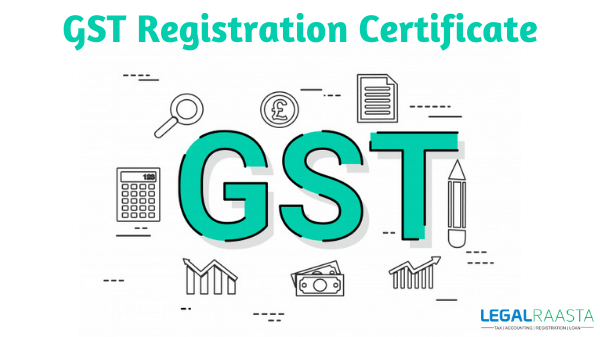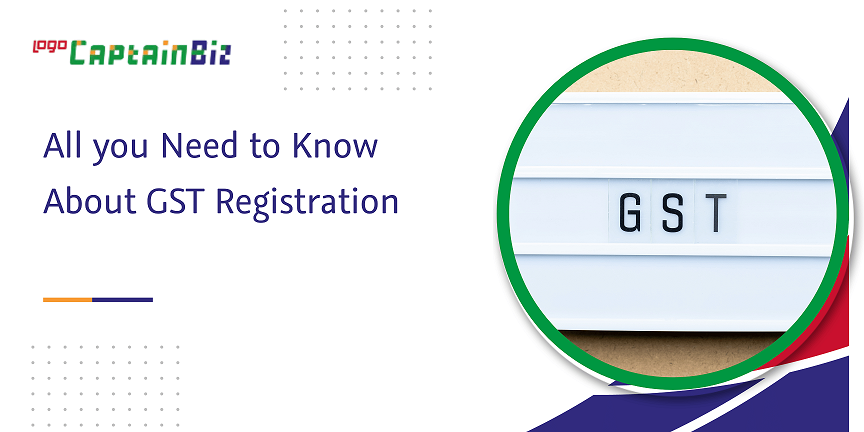Navigating the Intricacies of GST Registration: Professional Tips and Ideal Practices for Smoother Conformity
From analyzing enrollment demands to using technical devices for structured procedures, the trip in the direction of smoother GST conformity is nuanced and multifaceted. Stay tuned to uncover important techniques and insights that can help businesses guide with the intricacies of GST enrollment with skill and confidence.
Comprehending GST Registration Requirements

In addition to turn over thresholds, companies engaging in interstate sales or supplying taxable services might likewise be required to sign up for GST, also if their turn over is listed below the prescribed limitation (Singapore GST Registration). Comprehending these thresholds and demands is important to avoid charges and make sure smooth procedures within the legal framework
In addition, businesses need to collect and prepare the essential documentation, such as evidence of identification, address, service consolidation, and savings account information, before initiating the GST enrollment process. Falling short to offer exact information or fulfill the registration target dates can result in fines or other lawful effects. Services must stay informed regarding the particular GST registration needs relevant to their procedures to preserve conformity and stay clear of possible problems.
Organizing Vital Paperwork
Businesses starting the GST registration procedure must meticulously compile and arrange the crucial documentation needed for entry. The essential documents generally needed for GST registration consist of evidence of company registration or address, identity and unification evidence of business owners or partners, financial institution account information, evidence of primary business, and consent types. Making sure that these documents are readily offered and organized can enhance the registration procedure and avoid rejections or delays.
To properly arrange essential paperwork, businesses should develop a central system for storing and categorizing the called for paperwork (Singapore GST Registration). Making use of digital storage space remedies can assist preserve very easy access and guarantee that documents are firmly kept. Additionally, establishing a checklist of all needed documents can act as a handy device to track what has been gathered and what is still needed for entry

Leveraging Modern Technology for Efficiency
Enhancing functional efficiency through technical integration is extremely important for contemporary organizations navigating the intricacies of GST registration. One of the crucial means innovation can aid in GST registration is via the use of automated software application solutions.
Furthermore, modern technology can facilitate seamless interaction with tax authorities. On the internet sites and communication tools make it possible for companies to send files, fix queries, and obtain updates in a much more efficient way. This not only quickens the enrollment process yet also helps in maintaining clear and trusted communication with the relevant authorities.
Moreover, cloud-based storage space services offer a secure platform for companies to store and accessibility their financial data, making sure conformity with GST record-keeping requirements. By streamlining information storage space and automating processes, organizations dig this can enhance their general efficiency and precision in GST enrollment treatments.
Proactive Compliance Surveillance

To ensure effective aggressive conformity tracking, businesses should develop robust internal controls, conduct periodic audits, and utilize automation devices for real-time monitoring of GST deals. Routine training sessions for employees on GST compliance needs can likewise assist in creating a culture of conformity within the company. Furthermore, engaging with tax obligation professionals or professionals can provide useful insights and support on navigating complicated GST regulations.
Engaging With Specialist Specialists
Involving seasoned tax professionals can substantially bolster a business's understanding and conformity with elaborate GST policies. Specialist experts bring a riches of expertise and experience to the table, helping services browse the complexities of GST registration easily. By leveraging their experience, companies can make sure exact filings, reduce the danger of mistakes, and stay updated with the most recent regulatory modifications.
When involving with specialist specialists, it is vital to pick experts with a solid performance history in GST conformity (Singapore GST Registration). Seek professionals that have a deep understanding of the pertinent regulations and regulations, as well as experience working with services in your market. Efficient interaction is type in this collaboration, so ensure to clearly define your assumptions and establish regular touchpoints to discuss progress and deal with any type of worries
Moreover, professional consultants can offer valuable understandings and recommendations on optimizing your tax obligation technique, identifying potential cost-saving opportunities, and streamlining your More hints conformity procedures. Generally, buying professional consultancy services can go a lengthy means in making certain smoother GST conformity and staying clear of expensive blunders.
Final Thought
To conclude, navigating the intricacies of GST enrollment calls for a comprehensive understanding of the requirements, organization of essential documents, leveraging modern technology for efficiency, aggressive conformity tracking, and interaction with specialist specialists. By following these ideal techniques, companies can make certain smoother conformity with GST guidelines and avoid possible fines or penalties. It is necessary to stay educated, proactive, and attentive in handling GST enrollment to preserve conformity and support economic stability.
To make certain compliance with tax obligation policies, organizations need to thoroughly recognize the intricate demands for GST registration. Product and Provider Tax (GST) is a value-added tax obligation imposed on a lot of items and services in a nation, making it important for companies to sign up for GST to avoid lawful effects.Additionally, organizations should collect and prepare the required documents, such as proof of identification, address, company unification, and bank account details, prior to starting the GST enrollment process. Businesses must remain educated about the details GST registration requirements relevant to their procedures to keep compliance and stay clear of potential problems.
The vital documents normally required for GST registration include evidence of company registration or advice incorporation, address and identity evidence of the business proprietors or companions, financial institution account information, evidence of primary location of service, and consent kinds.